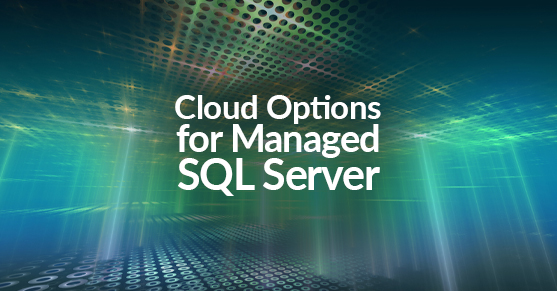SQL Server is a popular relational database management system (RDBMS) that is used by businesses of all sizes. In recent years, there has been a growing trend of moving to managed SQL Server in the cloud. This is because the cloud offers a number of benefits, such as scalability, elasticity, and cost-effectiveness.
There are a number of different cloud options available for SQL Server. Here are some of the most popular managed ones:
Amazon Relational Database Service (RDS): RDS is a fully managed database service that offers a variety of features, including high availability, scalability, and security. It supports a wide range of databases, including SQL Server.
Google Cloud SQL for SQL Server: Cloud SQL for SQL Server is a fully managed database service that offers a high level of performance and availability. It also integrates with other Google Cloud services, such as Cloud IAM and Cloud Monitoring.
Microsoft Azure SQL Database has at least two options:
Azure SQL Managed Instance: This is a fully managed database service that offers high availability, scalability, and security. It is compatible with SQL Server on-premises and offers a number of features that are not available in other cloud options, such as Always On Availability Groups and Azure SQL Managed Instance scale-out groups.
Azure SQL Database: This is a fully managed database service that offers a high level of compatibility with SQL Server on-premises. It is a good option for workloads that do not require the same level of complexity or need the full set of features available with Azure SQL Managed Instance.
Other cloud providers have SQL Server available as self-managed deployments, and many where you can bring your own license (BYOL).
When choosing a cloud option for SQL Server, there are a number of factors to consider, such as:
- Your budget: The cost of cloud computing can vary depending on the provider and the features you choose.
- Your needs: Do you need a fully managed database service, or are you comfortable managing your own database?
- Your compatibility requirements: Do you need a fully compatible database with SQL Server on-premises?
- Your security requirements: How important is security to you?
Once you have considered these factors, you can start to narrow down your choices. If you are not sure which cloud option is right for you, you should contact a cloud computing expert like XTIVIA.
Here are some additional benefits of moving SQL Server to the cloud:
- Reduced costs: The cloud can help you to reduce your IT costs by eliminating the need to purchase and maintain hardware and software.
- Increased flexibility: The cloud allows you to scale your database up or down as needed, which can help you save money.
- Improved performance: The cloud can provide you with better performance than on-premises solutions, especially for applications that require a lot of processing power.
- Enhanced security: The cloud offers several security features that can help you protect your data.
If you are considering moving SQL Server to the cloud, I encourage you to contact a cloud computing expert to discuss your specific needs. XTIVIA can help you make the right choices, design and configure your environment, migrate to your new systems, and also provide you exceptional ongoing support, help, and guidance through our Virtual-DBA Remote DBA service. XTIVIA can help either way if you are in the cloud or running a more traditional on-premises installation of Microsoft SQL Server.
Contact us for more information or read more about our SQL Server Managed Services.

